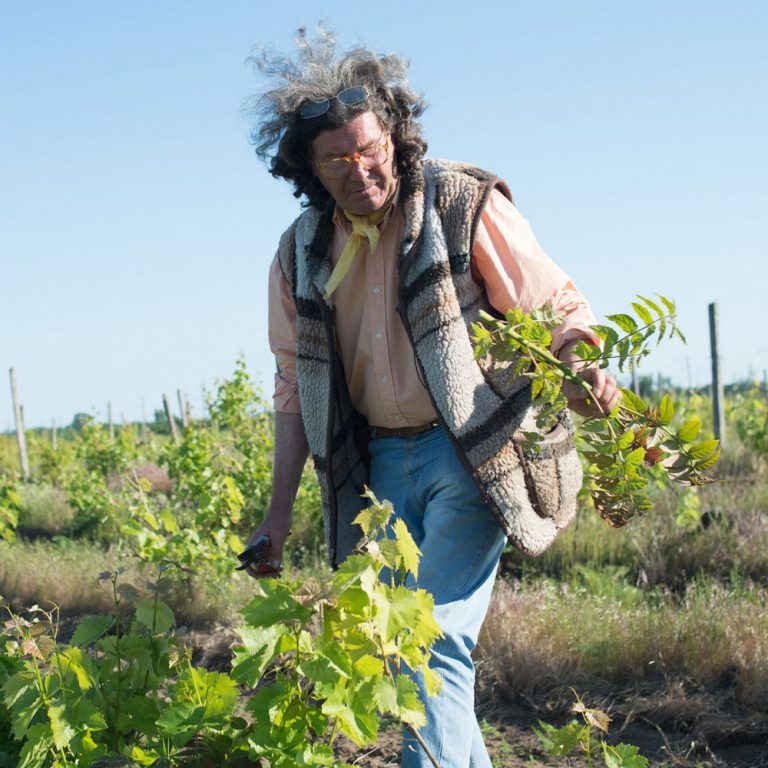Residents of Shabo village call him monsieur. Christophe Lacarin de Fabiani, an energetic 64-year-old Frenchman has been living and working in Ukraine for 16 years, celebrating every day of his life. The entrepreneur, the perfumer and the winemaker, he created his own corner of aristocratic hospitality and proprietary, hand-made wines in the famous Bessarabian village.
Although grapes are grown on almost all continents around the world, only several regions have special potential to create truly amazing wines.
Areas favorable for vineyards are parallels of 30º to 50º northern and southern latitude. This is due to the fact that the grapes do not ripen in cold conditions, and at high temperatures fruits ripen too soon and have a specific taste.

It is believed that the best wines can be made on the 45th parallel. It is called “the wine-parallel”. This latitude is famous for its wine-growing regions, such as the French Burgundy and Bordeaux, as well as the Italian Piedmont.
But climate is not the only factor that is important for cultivating high-quality grapes. In general, wine is a product of its area. There is a special term for this in winemaking that is “terroir”. It means a combination of some natural and geographical factors, such as climate, type of soil, terrain, and other plants that grow in the area. All these factors affect the taste of grapes and the very wine. For centuries, winemakers have been looking for the area with an exceptional combination of all the necessary natural factors.
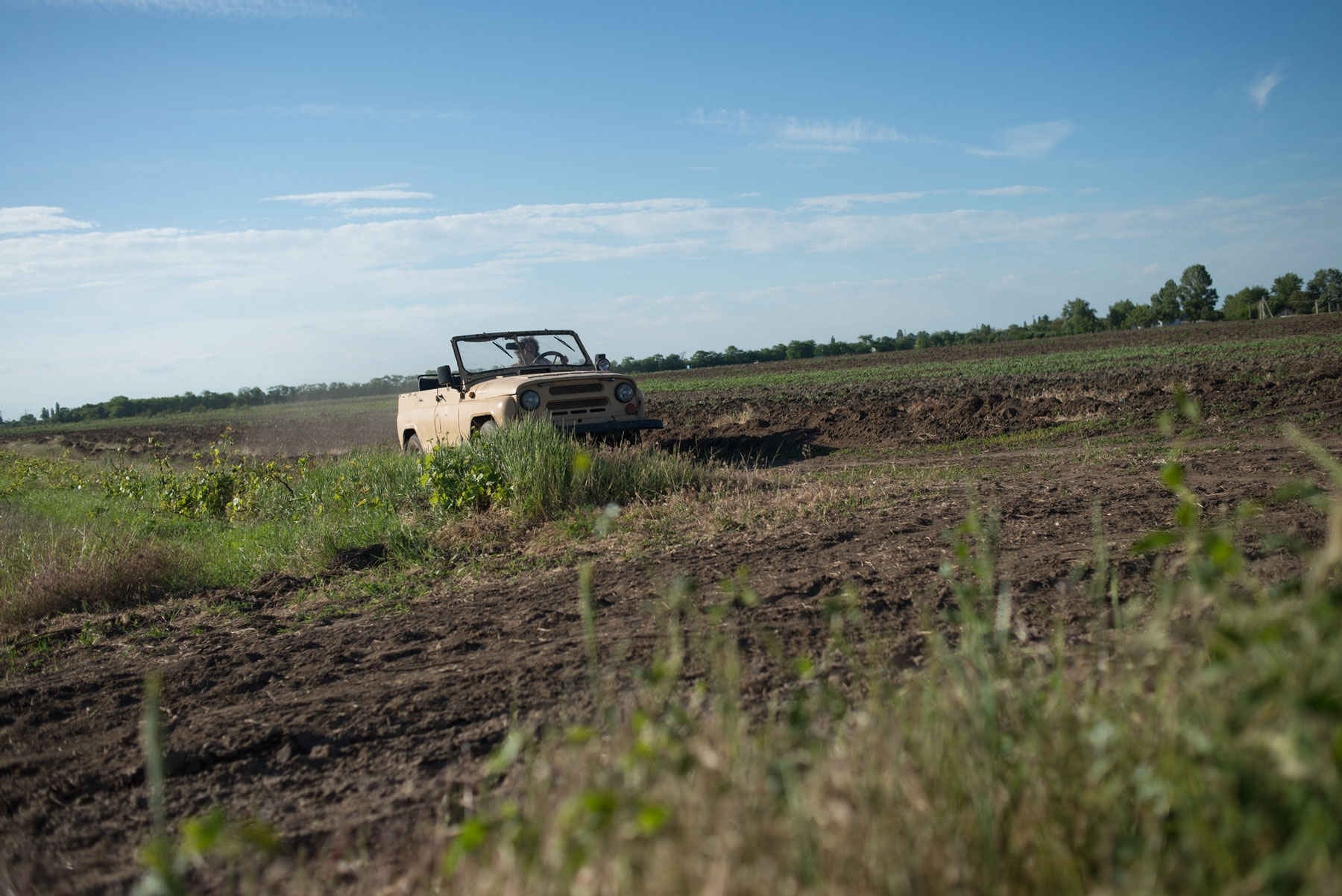
Shabo
Along with the Nyzhnie Prydnistrovia, Zakarpattia and Crimea, Bessarabia is one of Ukraine’s winemaking regions. One of the centers of winemaking in Bessarabia is a village of Shabo. It is located on the banks of the Dnister Estuary, not far from the place where it runs into the Black Sea — 8 km away from Bilhorod-Dnistrovskyi and 70 km away from Odesa.
Historically, Shabo has been considered a good place for winemakers, as the village is located between the 46th and 47th parallels which are favorable for vineyards. Besides, Shabo has a mild climate, warm steppe air and sandy soils, and therefore it has perfect conditions for growing and after-ripening of grapes.
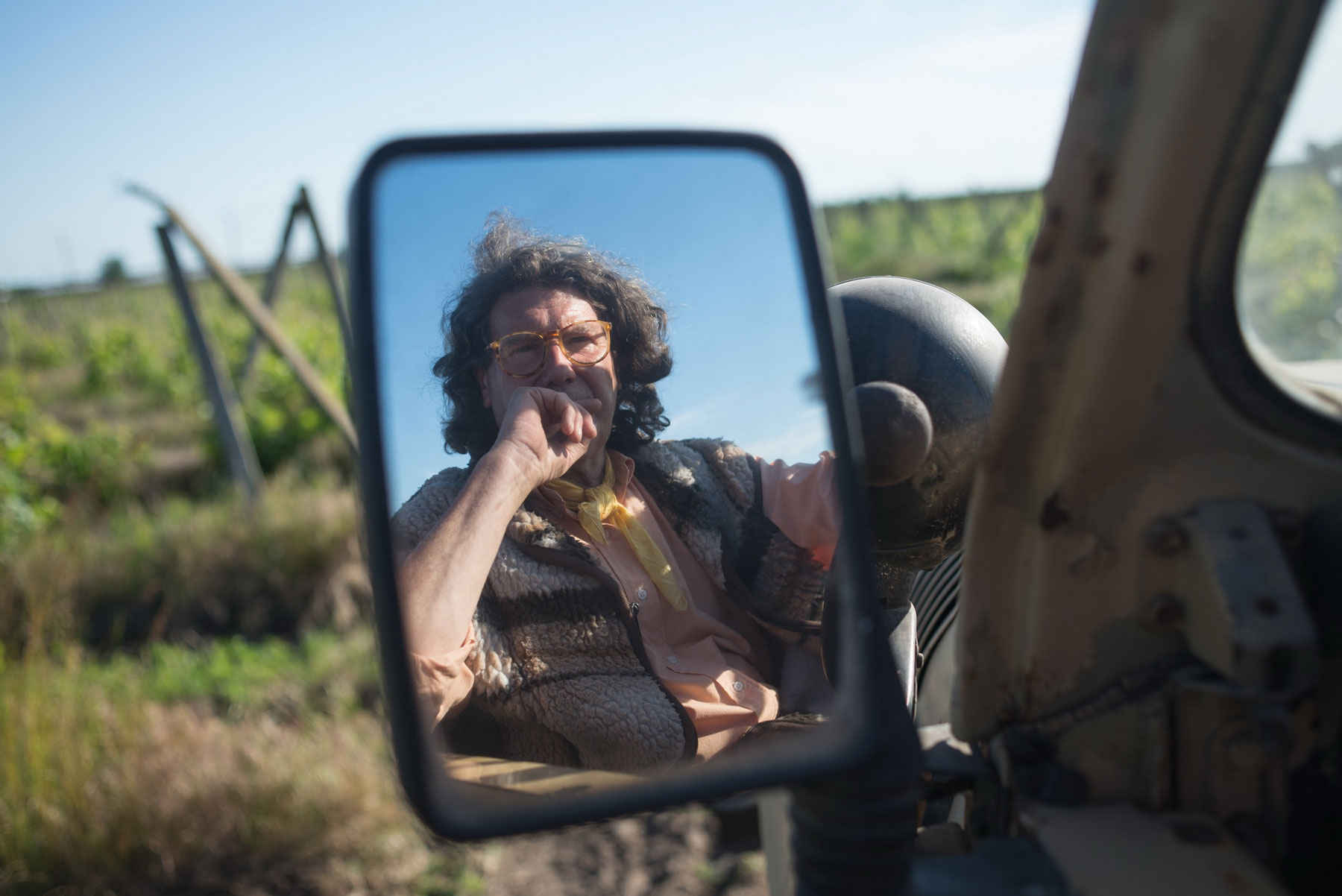
The history of Shabo began 500 years ago when the Turkish and Tatar nomads founded a village here and called it Acha-Abag, which means “lower gardens” in Turkish. In the 19th century, immigrants from the French-speaking canton in the west of Switzerland came here in search of a perfect winemaking place. Due to peculiar pronunciation, the French originally called their settlement “Shaba”, and later in quite a French way — Shabo.
The first settler and founder of the colony was a Swiss botanist and wine-maker Louis Tardan. He arrived at these lands in 1822, which is considered to be the official foundation year of a French settlement named Shabo. Eventually, the entire coastal strip of the Dnister Estuary turned into the winemaking area.
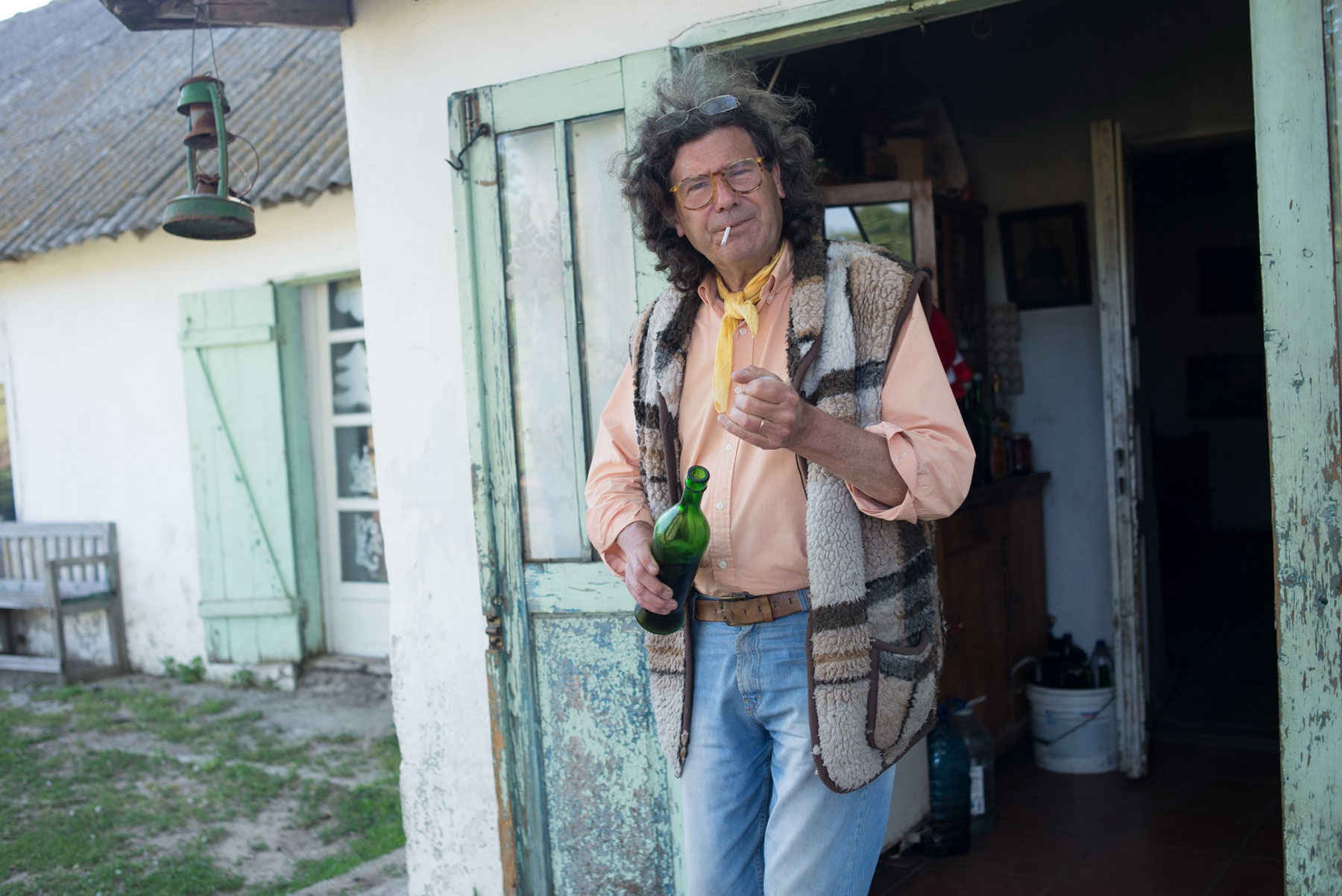
Christophe
Christophe Lacarin is from an aristocratic family. He inherited a title of the Marquis de Fabiani from his mother. The main business of the Lacarin family was a production of goods for photo and film industry. Besides, Christophe has worked at a family farm since his childhood, so he has learned how to deal with livestock, to drive a tractor, to grow tobacco, and to make wine which is natural for the wine-making region of Bordeaux. Lacarin earned a degree in economics. Subsequently, he purchased a photo products manufacturing factory which had been a bankrupt, and when he sold it in seven years, it was a successful and profitable enterprise. That was the basis for his capital stock.
Christophe invented his first fragrance when he was only 10 years old. He mixed two bottles of mother’s perfumes, and his mother was very angry with him. But Lacarin did not drop his passion. He was working in a perfume company in Paris for three years, where he created some new scents. Lacarin also partnered with specialists from the Lviv Cosmetic Factory, where he created 21 fragrances in a year and a half. Each fragrance was named after the “Donjuan list” of Alexander Pushkin, that is Anna, Maria, Elizabeth, Natalia, etc. The idea of such collection came to Lacarin after he had visited the Pushkin Museum in Odesa.
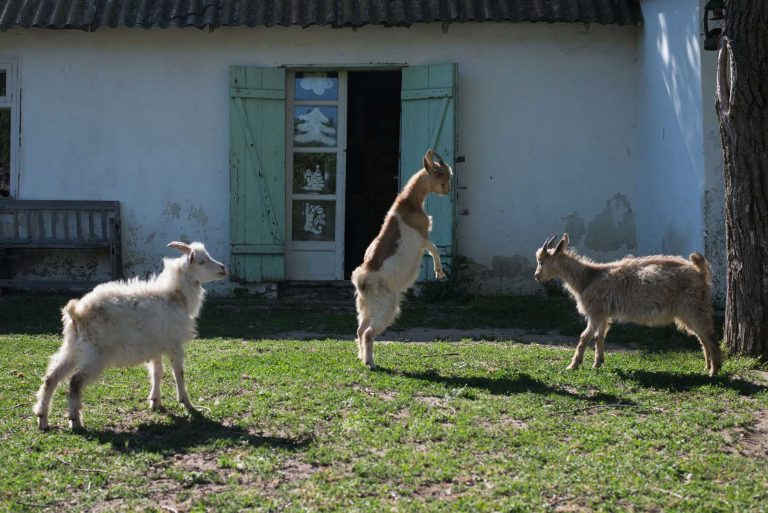
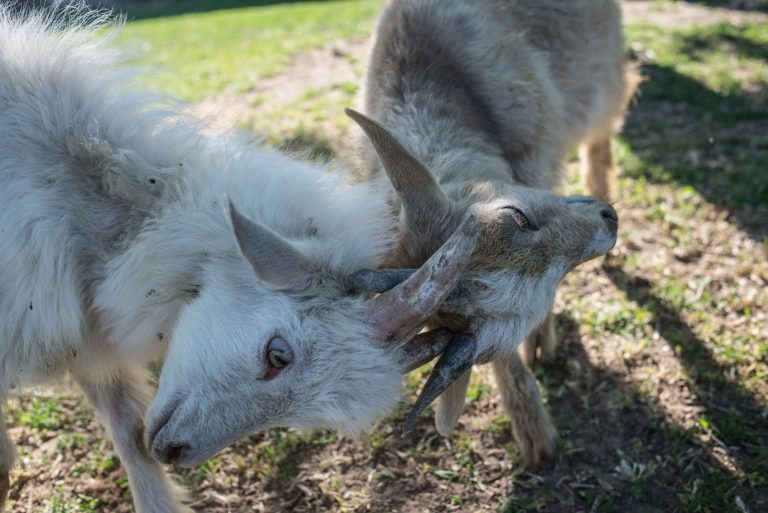
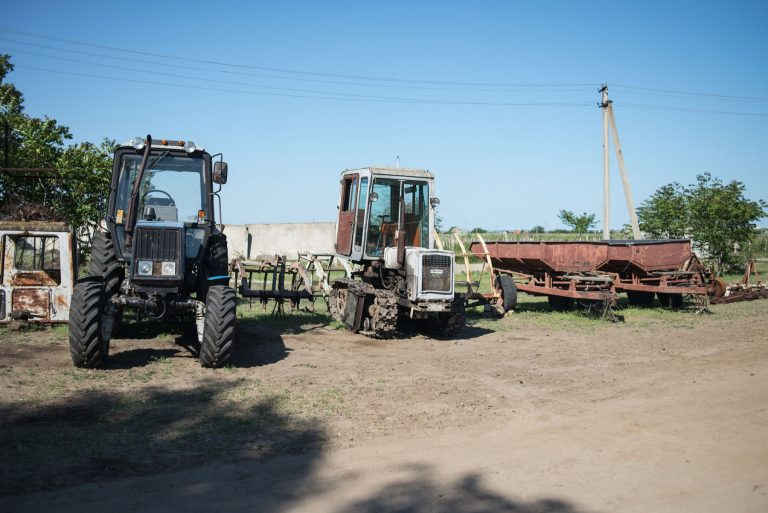
slideshow
The first time Christophe Lacarin visited Ukraine was in 2001. He came on an invitation of his friend, a French philanthropist who organized a contest for trumpeters in Ternopil. That was when the Marquis got acquainted with the concertmaster of Odesa Academy of Music, a pianist Marianna who eventually became his wife. During a year, Christophe was living between Lviv and Odesa. He remembers well his first acquaintance with Odesa, as if it were yesterday:
— I remember Odesa of 2002. It was morning. I took a taxi, it was an old “Pobeda”. And I asked a driver: “How old is your car?” He said: “I didn’t count, but I know that it was manufactured in 1953”. I thought it was a good sign (Christophe Lacarin was born in 1953 — ed.)!
Finally, Christophe moved to Odesa, he married Marianna, and they started their family life. Now, the couple has two daughters: Sofia (elder one) and Maria. In general, Christophe Lacarin has seven children from different marriages.
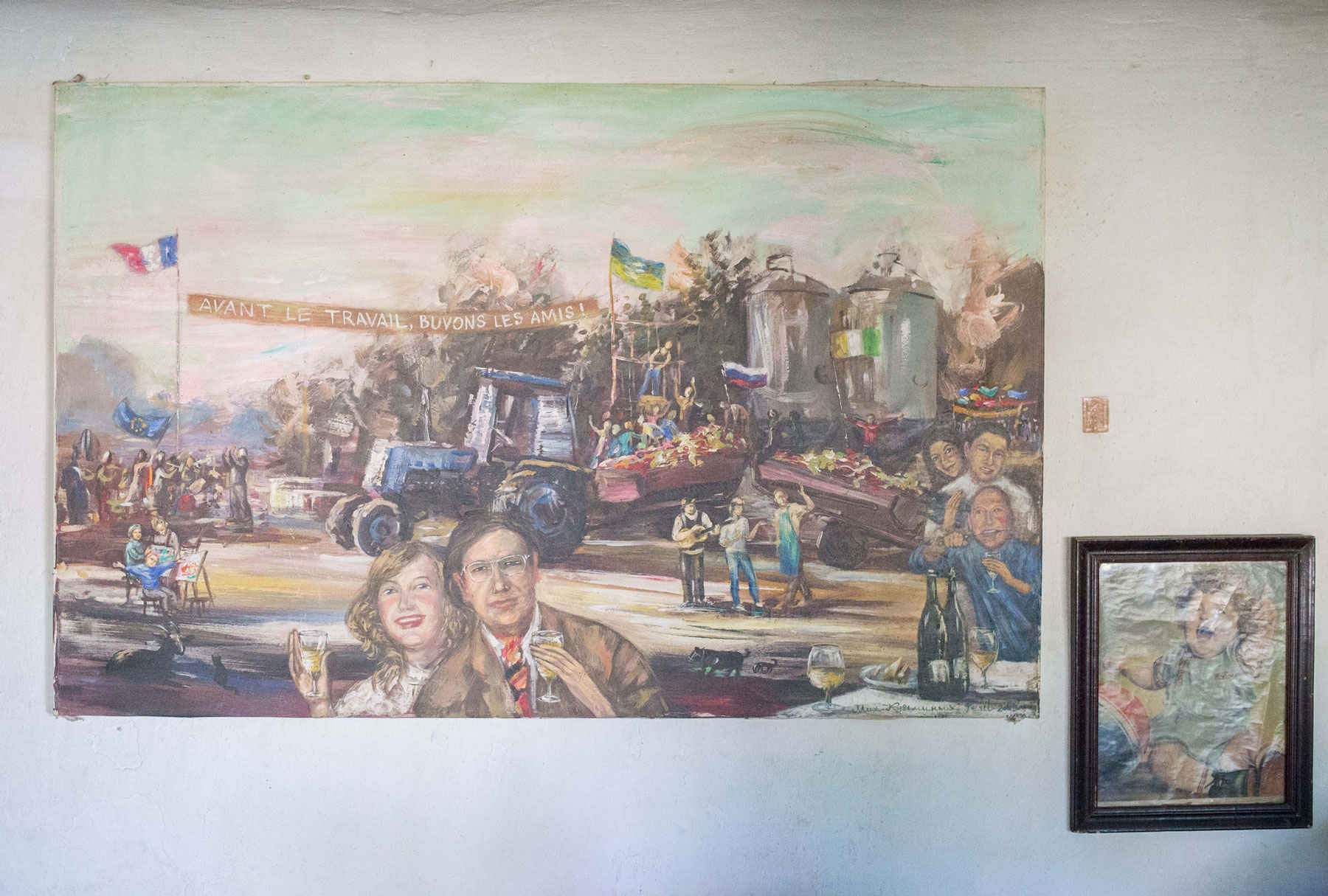
Perfume fountains
In 2004, on Lacarin’s initiative a fountain was set in Odesa City Garden, which, apart from water, was spraying perfumes during warm season. That was Christophe’s gift to Odesa for the 210-year anniversary of the city, and also an act of adoration for his beloved Marianna. The author of a sculptural composition named “Fountain of Love — A Living Fountain” was an artist Alexander Tokarev. The sculpture depicted a man and a woman with a bowl of water under them. Every day 250 ml of perfume were added to the bowl.
The fountain odor was chosen based on the votes of Odesa citizens. Testing of fragrances created by Lacarin was held in the Pushkin Museum. Marianne, Christophe’s wife, together with her colleagues organized the musical accompaniment for this event. Finally, Odesa citizens chose a fragrance with the notes of sea and acacia.
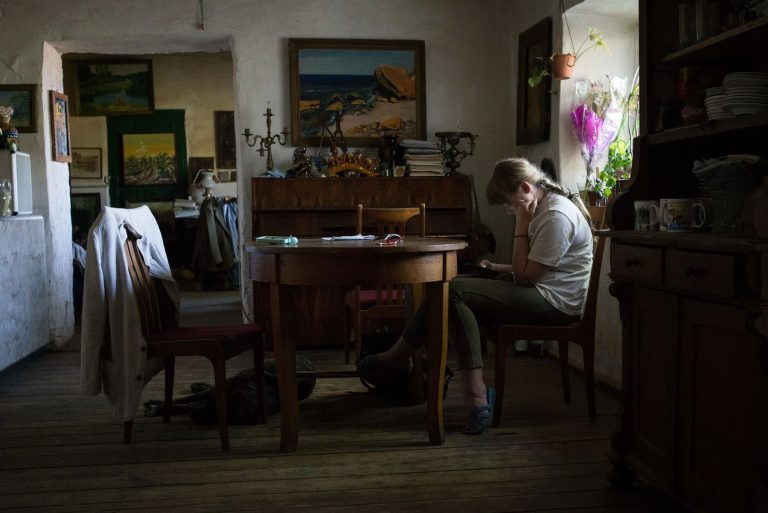
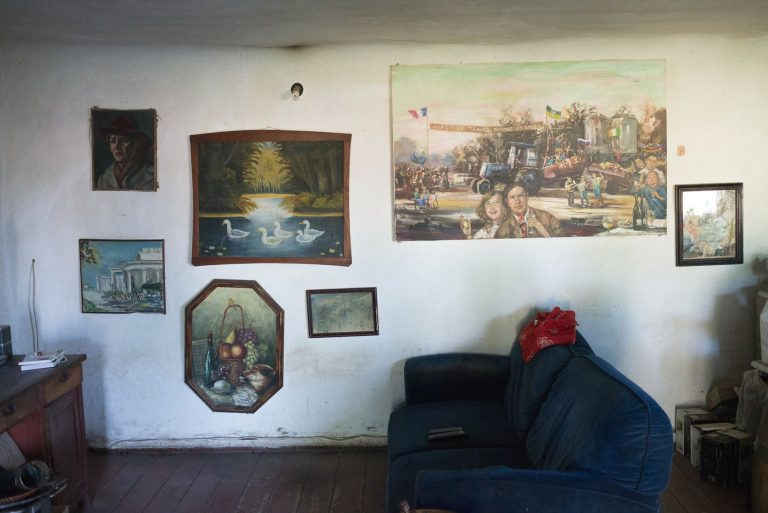
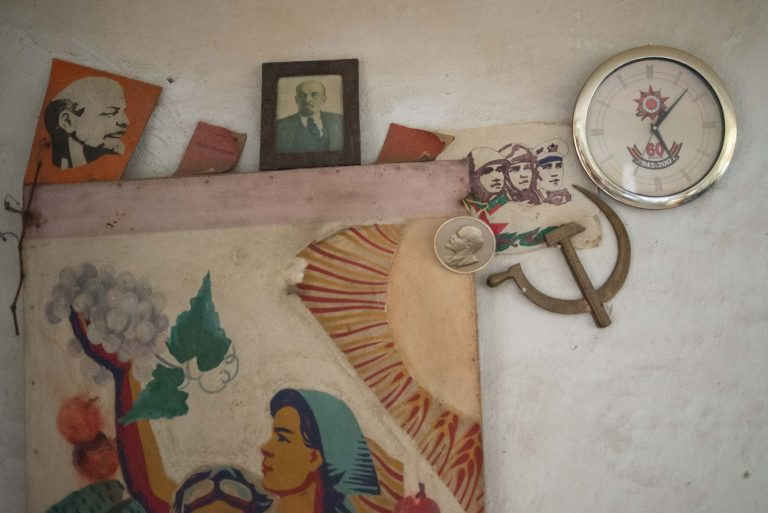
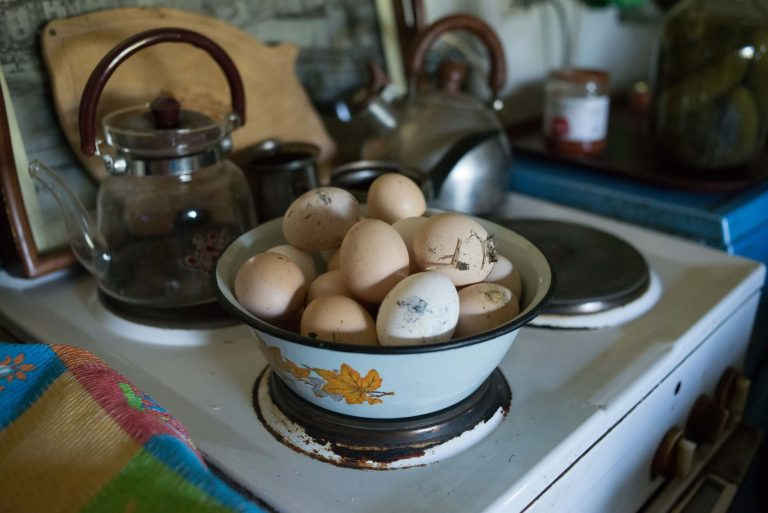
slideshow
It is often said that Christophe Lacarin had got inspiration for the fountain from the poem “The Fountain of Bakhchisarai” by Alexander Pushkin. And it has some reason, Lacarin created the following two fountains — “A Fountain of Love” and “Crimean hope” in Bakhchisarai. The first one was based on a spicy aroma while the second one had the aroma of Crimean lavender.
In the spring of 2008, one more Lacarin’s fountain was set in the Seaside Park in Alushta. It had an image of mermaid depicted with three large shells. Also, an aroma with sweet notes was chosen for the fountain. None of the fountains are functioning now.
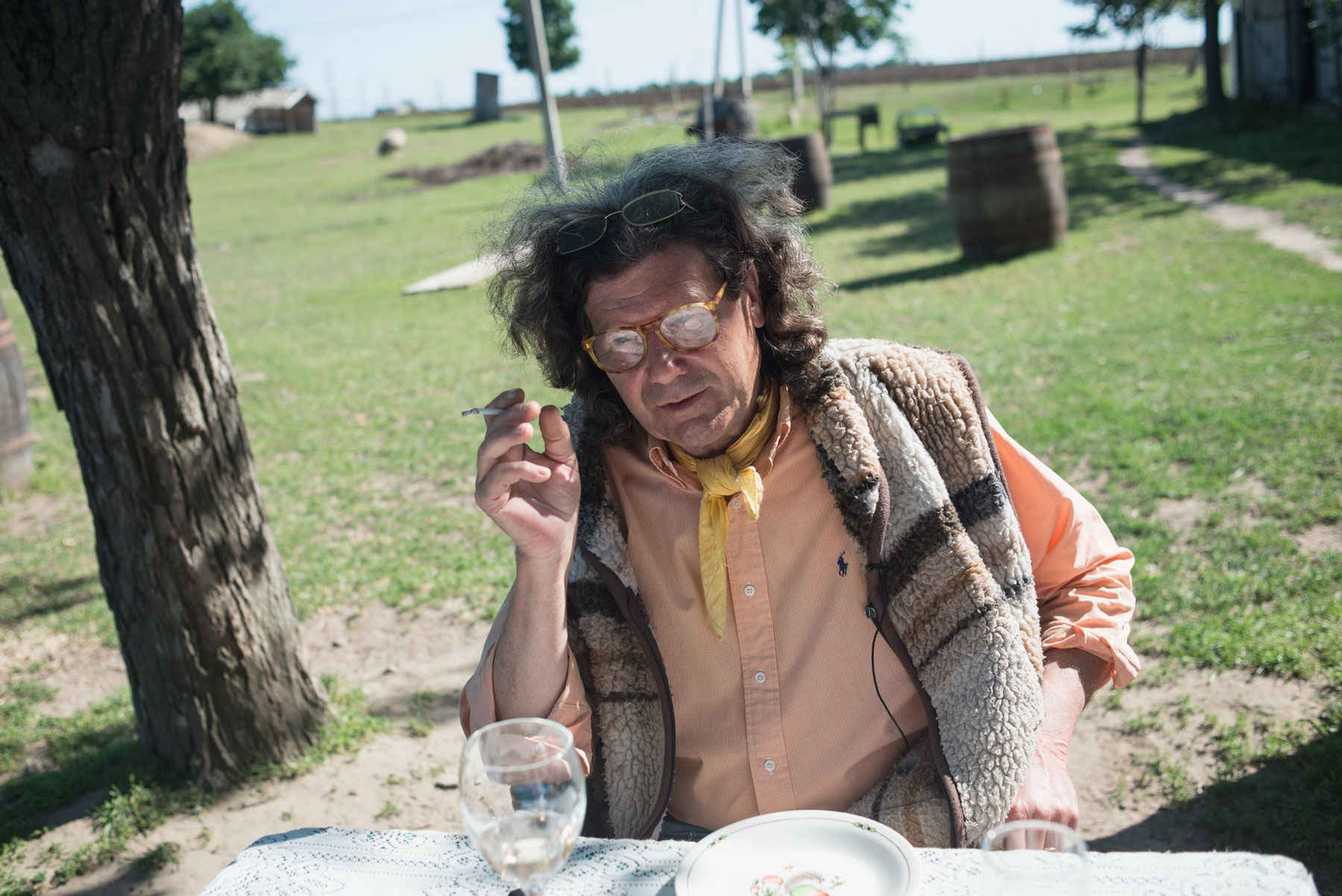
Chateau
Christophe Lacarin often drove around Odesa to explore some interesting places. Once, after reading Pushkin’s poem “Grapes”, he decided to visit Shabo village:
— I discovered the wonderful soil. The climate was great, and the air was so fresh! It took less than a week to decide to start some activity there.
Lacarin found out that a part of the vineyards that previously belonged to Lenin State Farm was supposed to be cut down. Christophe was shocked at this fact, as there were rare varieties of vine-grapes, so he decided to lease these lands. The shareholders leased out 150 ha (370 ac) of land, and the Marquis started to farm grapes.
On the land leased by Lacarin there were wine cellars, a dining room, stables and a depot, which was formerly the place for tractor brigade. Christophe was interested in the fact that the building of the depot was built by the Swiss colonists in 1822. Actually, it’s one of the first buildings in the village located on the historic land. The Marquis himself organized water supply and sewerage on his land.
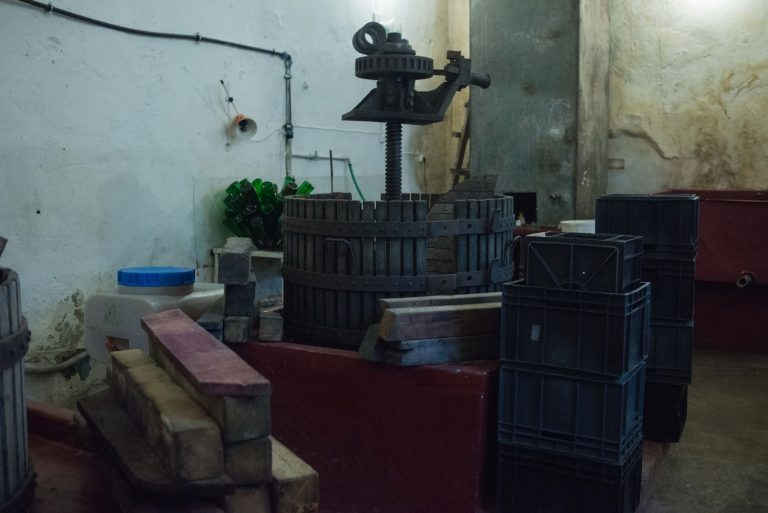
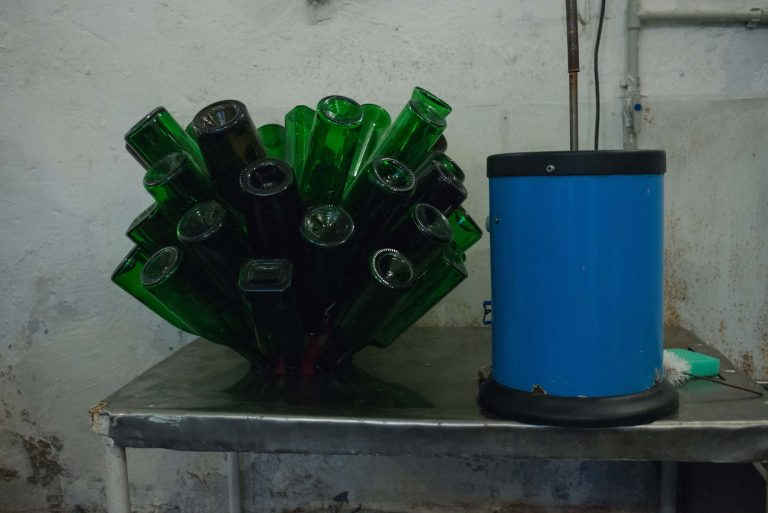
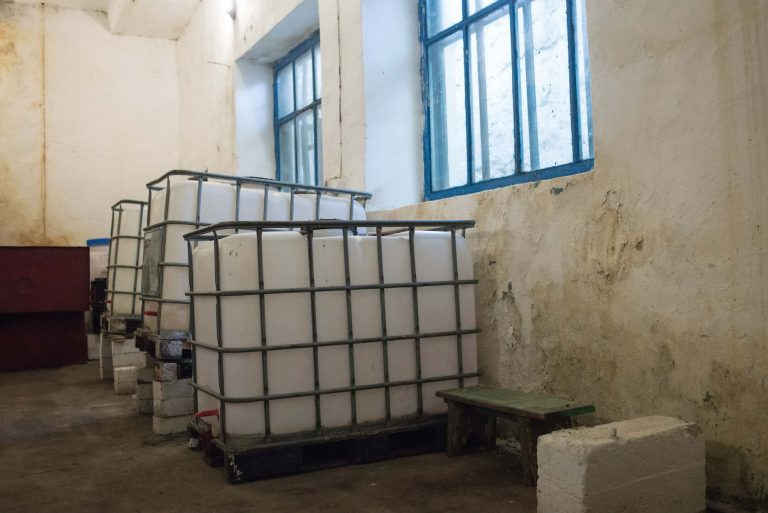
slideshow
Christophe shows a wine cellar — the place where wine is made and stored. The ancient French recipes are used here for wine-making. In addition, Lacarin produces wine in an environmentally friendly manner and does not apply any chemical additives that is his strict principle.
At the farm in Shabo, there is a full cycle of wine production: grape harvesting, beverage manufacturing, bottling, aging, packaging and delivery to almost every part of Ukraine. In Europe, such wines are called “castle wines”. It means that all stages of product manufacturing take place in one wine-making property — chateau (French for “castle”).
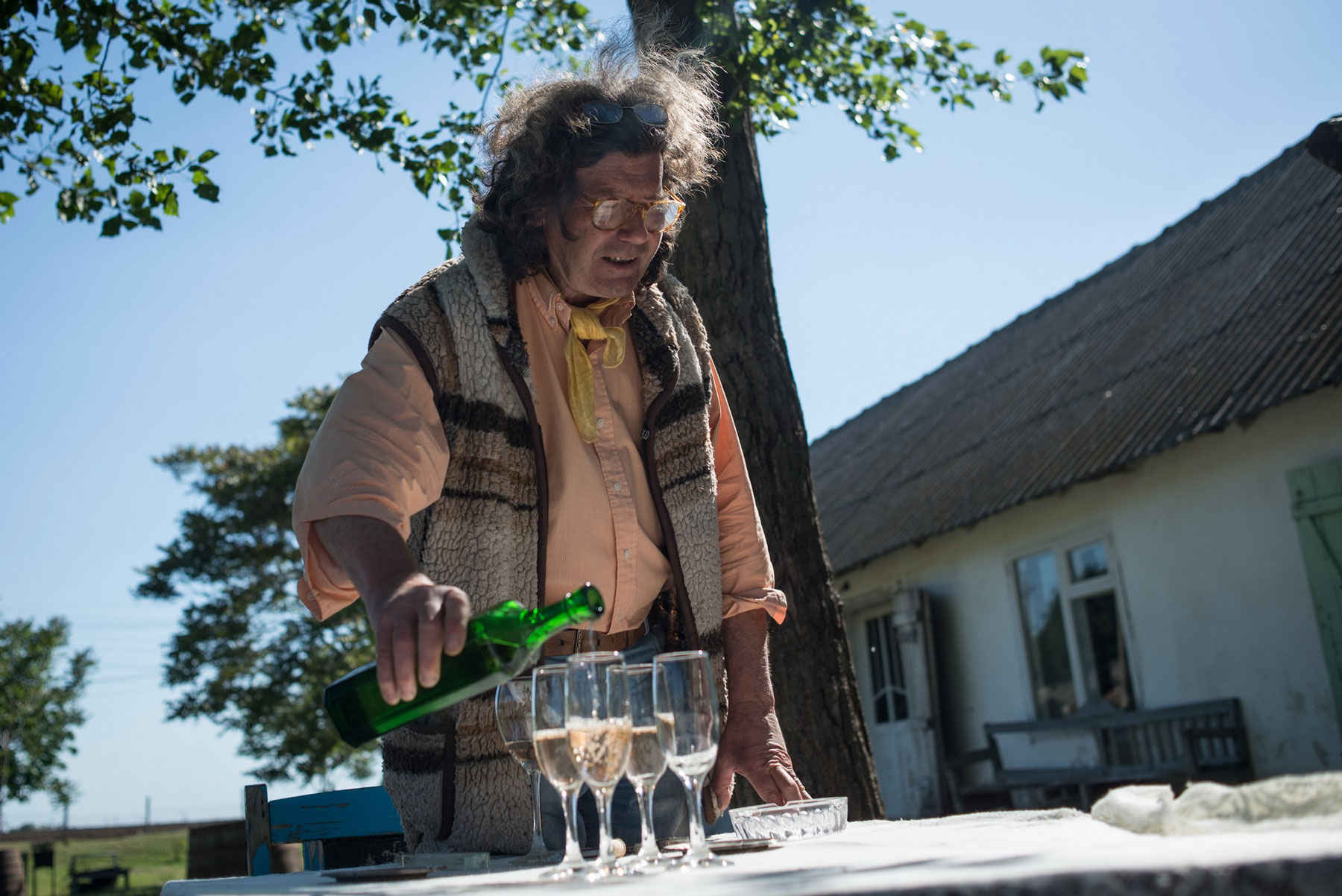
In Shabo, wine is aging for at least 9 months. The Marquise shows the cellar with bottles of wine made in 2013-2015. Depending on the variety and type of sediment, wine at different stages of production is stored in different positions and angles. Some bottles should be rotated several times a day.
Christophe Lacarin started his winery as a hobby rather than a business. It is a great creative experiment for him:
— Every time I need to think of what I can improve.
Lacarin grows 14 varieties of grapes, including 7-8 main ones: Cabernet, Sauvignon, Rkatsiteli, Chardonnay, Odesa Black grapes… He has dogs, cats, hens, sheep, goats, etc. at his farm.
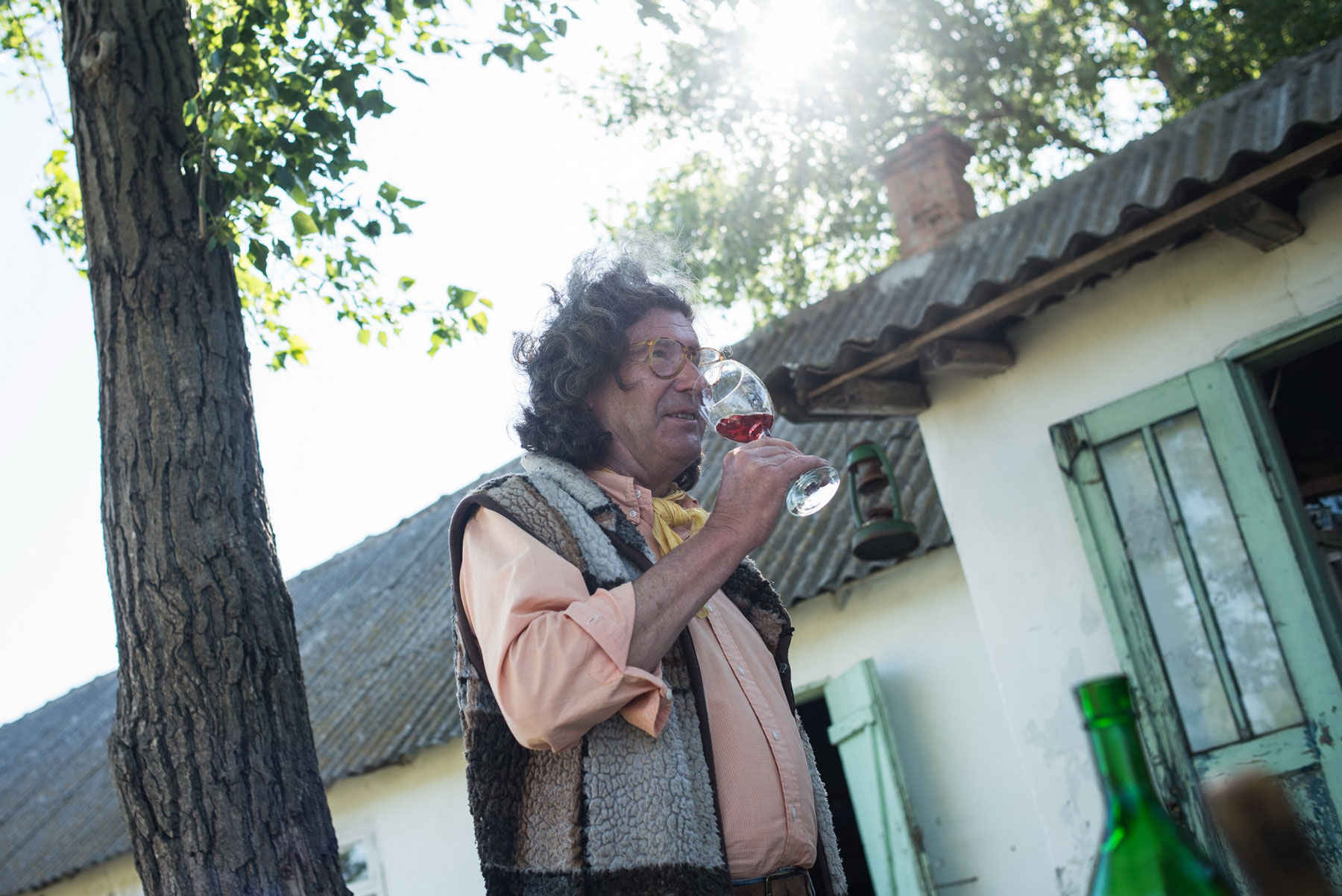
Business traps
For several years, Lacarin was filing documents and giving samples of wine to legitimize his production and obtain a sale license. In early 2016, the fiscal service accused Lacarin of illegal sales of alcoholic beverages. The Marquis’s equipment was confiscated and his warehouse was closed and sealed. Trying to sort out the situation, Lacarin understood that he needed at least 14 permits to produce and sell wine.
In the spring of 2016, Christophe Lacarin obtained a license and an excise stamp for manual production of wine, and subsequently he obtained an export license. In addition, in 2016 parliament cancelled a license for the bulk sale of wine produced from own raw materials, which cost 0,5 million of UAH.
But that was not the end of Marquis’s problems. His relations with contracted landowners became strained. At the end of 2016, unknown people on bulldozers tried to destroy vineyards on fields that were leased by Lacarin. In particular, the attackers began to steal concrete columns from grape plantations. Lacarin appealed to police, but neither thieves nor those who had damaged the vineyards were punished:
— In Ukraine nobody likes competitors. Monopolistic system thrives here. So does the corruption… Unfortunately, I must say that corruption is a genetic feature which is spread not only in Ukraine, but the whole region in general. It has its roots in history, after the dekulakization (repression against prosperous farmers — tr.) and collectivization in 1930s. People didn’t have money for food and living. They had to steal to survive.

Christophe Lacarin believes that in order to overcome this problem, it is necessary to increase salaries, so that people have enough money for living and there is no incentive to steal:
— I remember disturbances in May 1968 (there were student demonstrations, mass riots, and an approx. 10-million strike in France, which led to the power shift and to fundamental changes in the French society — editor). It was a huge mess. What were the actions of the State? The government increased a minimum salary by 60%. Indeed, the inflation took place, but in general it was the most optimized way to overcome the crisis. It’s wrong to assume that increase in salary will make businesses go bankrupt.
Companies should learn how to operate more effectively and qualitatively. That’s how they will find ways to set higher prices for their products and export them abroad.
Frankly, I was thinking of leaving Ukraine in December 2013, when disturbances began. I felt something wicked was going on in the country. But when I was asking for some advice, everybody said it would be all right. We believe that life in Ukraine will be better, if not “tomorrow”, then in a few years. I see some reforms, I see desire to change the country’s structure. Ukraine shouldn’t be like either Europe or USA, I see it an independent country with no corruption.
Story of Christophe Lacarin de Fabiani is constantly evolving due to his vigorous romantic character, his desire for experiments and discoveries. And the thing you can learn from the Marquis — aside from his many talents — is his ability to enjoy his life.
— Life is not just a work, is it? Don’t think about money all the time. People need to feel happy. I enjoy my life even when I have problems with local authorities, landowners and government. Each country has its problems, even the most prosperous ones.
How we shoot
To find out more about our trip to Odesa, about Lacarin’s course to have his own farm in Shabo and about hands that have smell of scraw fish, you can watch our video blog at:

